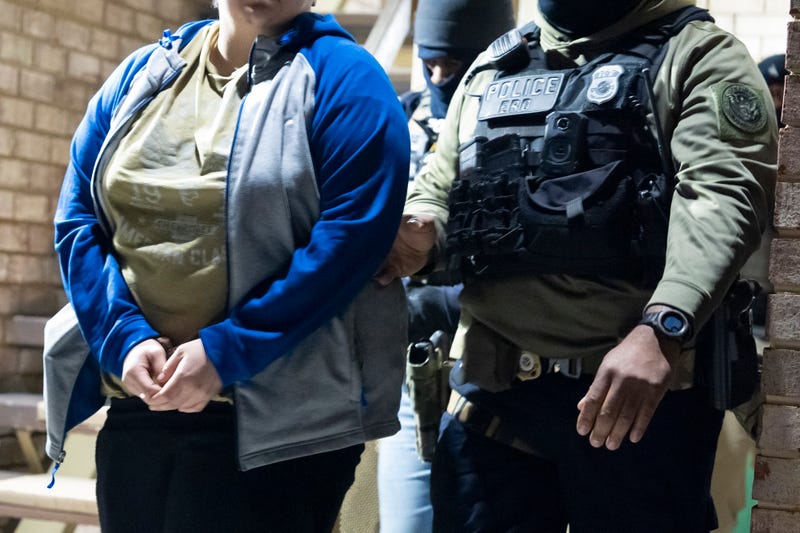
PHILADELPHIA (KYW Newsradio) — The Trump administration has called out parts of the greater Philadelphia region as being “sanctuary jurisdictions” that are “defying federal immigration law.” Local and state officials say they are ready to fight the administration in court should the list be used to take away federal funding.
The U.S. Department of Homeland Security named more than 500 “sanctuary jurisdictions” across the country and put them on notice that the Trump administration views them as obstructing immigration enforcement. The department said each one will receive formal notification that the government has deemed them noncompliant and if they’re believed to be in violation of any federal criminal statutes.
“These sanctuary city politicians are endangering Americans and our law enforcement in order to protect violent criminal illegal aliens,” DHS Secretary Kristi Noem said in a press release.
Philadelphia is on that list, alongside three of its collar counties and the states of New Jersey and Delaware.
🎧 RELATED
President Donald Trump signed an executive order in April requiring DHS and the U.S. attorney general to publish a list of states and local jurisdictions that they consider to be obstructing federal immigration laws.
At the time, it was an escalation of Trump’s efforts to get tough on “sanctuary cities” by threatening them with federal funding cuts and legal action.
When asked on a recent visit to Philadelphia about the president’s targeting of Pennsylvania and its cities, Gov. Josh Shapiro said he wouldn’t hesitate to take the Trump administration to court again.
“As governor, I think I’ve taken the Trump administration to court three or four times — I won’t get into a specific number — and we’ve been successful each time,” he said. “I want to make sure the rule of law is protected here in the commonwealth, our communities are protected, and I won’t hesitate to take action to do that if necessary.”
🎧 RELATED
While Pennsylvania wasn’t labeled a “sanctuary state” like neighboring New Jersey and Delaware, Philadelphia appeared on the list, as well as other cities in central and western Pennsylvania: Gettysburg, Pittsburgh, State College and York.
Chester, Montgomery and Delaware counties also appeared on the list, among other targeted counties.
None of the places on the DHS list impede Immigration and Customs Enforcement agents from detaining immigrants in their jurisdictions. Leaders there direct local law enforcement not to help ICE with its job, and instead focus on serving and protecting residents.
The Trump administration has repeatedly targeted communities, states and jurisdictions that it says aren’t doing enough to help ICE as it seeks to make good on Trump’s campaign promises to remove millions of people in the country illegally.
🎧 RELATED
Former Mayor Jim Kenney ended Philadelphia police collaboration with ICE over detainers in 2016, and Mayor Cherelle Parker pledged to uphold the policy when Trump signed his executive order in April. Last month, City Solicitor Renee Garcia told City Council that Philadelphia would take the Trump administration to court if any funding was threatened.
In response to the list, the Philadelphia Mayor’s Office said Philly was not a sanctuary city but a welcoming city. She said officials would review any communication from DHS carefully.
The list was compiled using a number of factors, including whether the cities or localities identified themselves as sanctuary jurisdictions, how much they complied already with federal officials enforcing immigration laws, if they had restrictions on sharing information with immigration enforcement or had any legal protections for people in the country illegally, according to the department.
If “sanctuary jurisdictions” are notified and the Trump administration determines that they “remain in defiance,” the attorney general and Homeland Security secretary are then empowered to pursue whatever “legal remedies and enforcement measures” they consider necessary to make them comply.
There’s no specific or legal definition of what constitutes a “sanctuary jurisdiction.” The term is often used to refer to law enforcement agencies, states or communities that don’t cooperate with immigration enforcement.
The DHS list can be viewed here.
